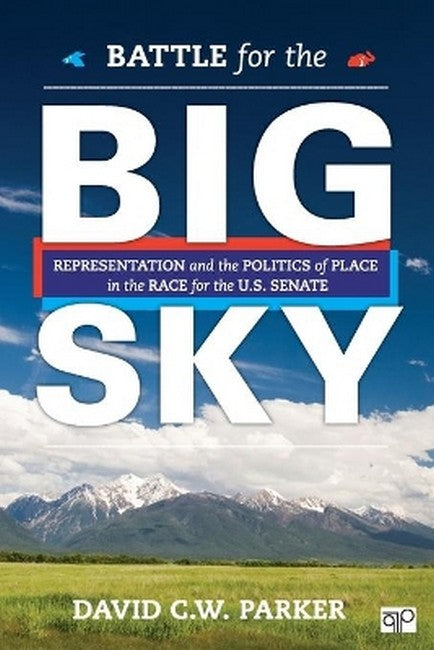David C.W. Parker is an associate professor of political science at Montana State University. He is the author of The Power of Money in Congressional Campaigns, 1880-2006 (University of Oklahoma Press), as well as articles on the consequences of divided government and how members of Congress build reputations with their constituents. His article, "Making a Good Impression: Resource Allocations, Home Styles, and Washington Work," won the 2010 Alan Rosenthal Award from the American Political Science Association. His co-edited volume on archival research methodology was published last year. Prior to entering the academy, Dr. Parker worked as a field representative, communications director, and campaign manager for a presidential, mayoral, and two Senate campaigns. He also writes a blog for the Montana State University Department of Political Science entitled Big Sky Political Analysis.
Request Academic Copy
Please copy the ISBN for submitting review copy form
Description
Chapter 1: What Happened in Montana Won't Stay in Montana Do Campaigns Matter? Montana Votes 'Yes' The Rise of the West Building Constituent Connections A Ringside Seat Chapter 2: Montana: The Last, Best Place? Place-Based Connections "One of Us" Montana: The Place Montana and the Feds: A Love-Hate Relationship Montana: The People Conclusion Chapter 3: Jon Tester's Creating a Buzz Prepolitical Careers and Representational Style The Dirt Farmer from Big Sandy Jon Tester Goes to Helena Going Belly to Belly with Senator Burns Conclusion Chapter 4: Denny Rehberg: A Man in a Hurry The Billings Rancher Forget Me Not: Denny the Insurgent Denny and Max Montana's Lone Congressman Two Early Political Careers, Two Different Paths Conclusion Chapter 5: Representational Style: How Congressman Rehberg and Senator Tester Govern Home Styles in the Big Sky Washington Work Explaining Washington Work to Constituents Home Styles and Town Halls Conclusion Chapter 6: Campaigning in a Citizens United World: The Early Days of the Race Priming and Framing Farmer Jon or Barack Tester; Rancher Denny or Irresponsible Dennis? Citizens United: More Money, Less Control The Pledge That Wasn't Conclusion Chapter 7: What Voters Know, How They Decide, and When Campaigns Matter How Individuals Make Voting Decisions in Congressional Elections Montana: Independent Voters Facing a Rich Information Environment Representational Relationships: What Did Montanans Know and When Did They Know it? Talking Politics: The Bozeman Focus Groups Reinforcing an Information Advantage Conclusion Chapter 8: The Message Matters: The Politics of Personality and Issues Do Campaigns Matter? What Political Science Says Rehberg's Decision Information Advantages and Voter Learning: How Personality Trumped Issues and Resources The Final Stretch Conclusion Chapter 9: The End Game How the Campaign Mattered The Democratic Brand It's the Economy, Stupid? "Responsible" Decision Making: The Politics of Representational Style Dan Cox: Spoiler? The Democratic Ground Game A Final Look Conclusion Chapter 10: Lessons Learned Future Directions Conclusion

